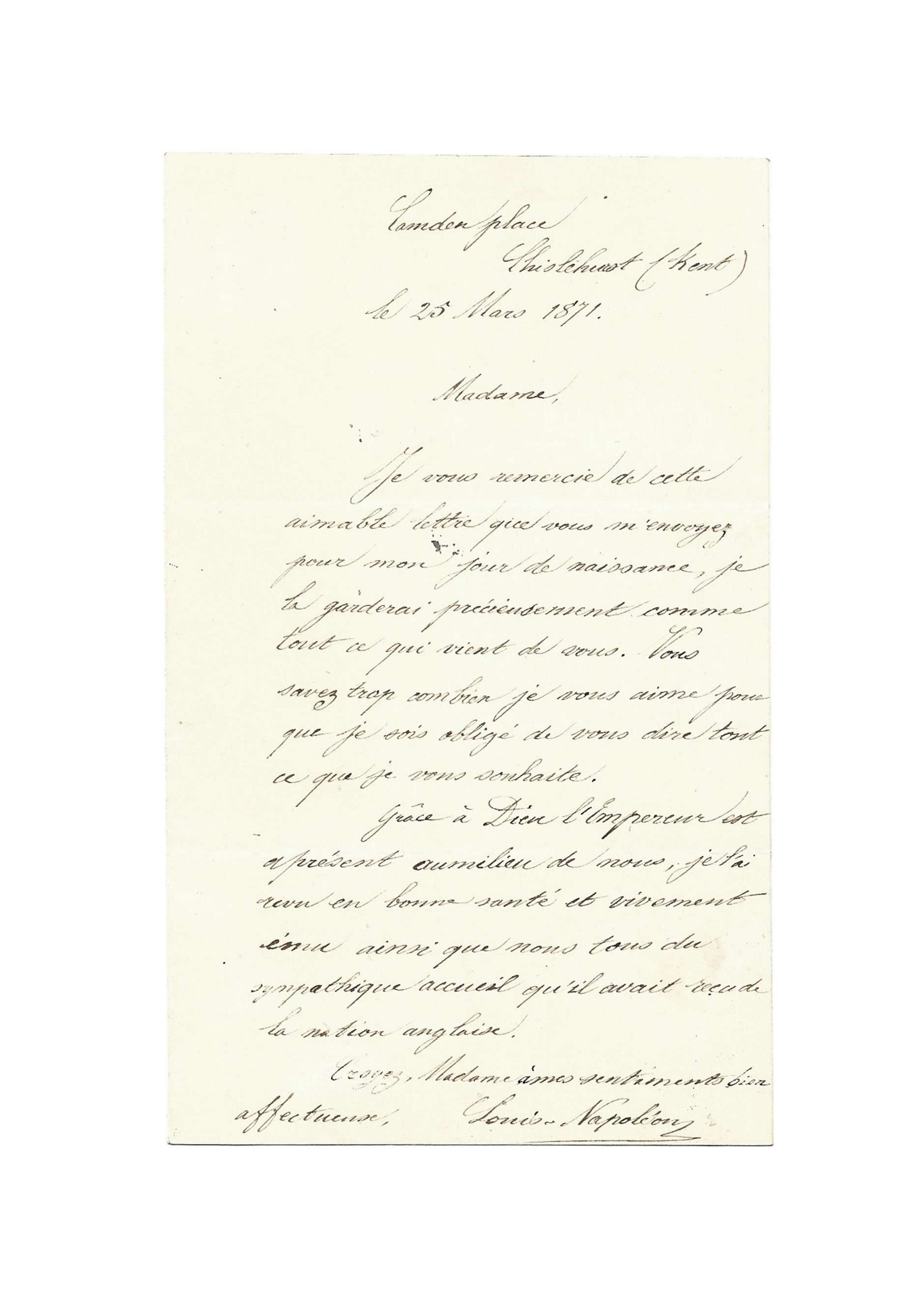PRINCE IMPÉRIAL, Louis-Napoléon Bonaparte (1856-1879)
Autograph letter signed « Louis-Napoléon » [to Marie Trotter]
Camden Place, Chislehurst (Kent), the 25th of March, 1871, 1 p. in-8°
« Thanks be to God, the Emperor is now with us… deeply moved, as we all were, by the sympathetic reception he had received from the English nation. »
Fact sheet
PRINCE IMPÉRIAL, Louis-Napoléon Bonaparte (1856-1879)
Autograph letter signed « Louis-Napoléon » [to Marie Trotter, according to a note coming with the letter]
Camden Place, Chislehurst (Kent), the 25th of March, 1871, 1 p. in-8°on bi-folio
A touching letter, in gratitude for the wishes of his correspondent on the occasion of his fifteenth birthday – Louis-Napoleon takes the opportunity to give news of his father, the Emperor Napoleon III, who had just been freed from captivity by Bismarck
« Madame,
Je vous remercie de cette aimable lettre que vous m’envoyez pour mon jour de naissance, je la garderai précieusement comme tout ce qui vient de vous. Vous savez trop combien je vous aime pour que je sois obligé de vous dire tout ce que je vous souhaite.
Grâce à Dieu l’Empereur est à présent au milieu de nous, je l’ai revu en bonne santé et vivement ému ainsi que nous tous du sympathique accueil qu’il avait reçu de la nation anglaise.
Croyez, Madame à mes sentiments bien affectueux.
Louis-Napoléon »
Napoleon III had just been freed from captivity by Bismarck on March 19, 1871, following the crushing defeat of the French troops at Sedan, a year and a half earlier. After joining his family in Camden Place, south-west London, the emperor soon received many prestigious visits, starting with that of Queen Victoria. This warm welcome from the English nation evoked here contrasts with the fate reserved in France, at the same time, for the imperial family: On March 1, 1871, the National Assembly, which met in Bordeaux, voted the official deprivation of Napoleon III and his dynasty, declaring him “responsible for the ruin, invasion and dismemberment of France”. Only six MPs voted against. The deposed Emperor protested, accusing the Assembly of exceeding its powers, of substituting itself for the will of the Nation, and demanded a plebiscite. However, the Third Republic would have to deal with a more serious crisis, as the Paris Commune had begun on 18 March, a week before this letter was written.
Provenance:
Jean-Claude Lachnitt’s estate
Bibliography:
Le Prince Impérial Napoléon IV, éd. J-C Lachnitt, Périn, 1999, p. 161 (partially transcribed)
